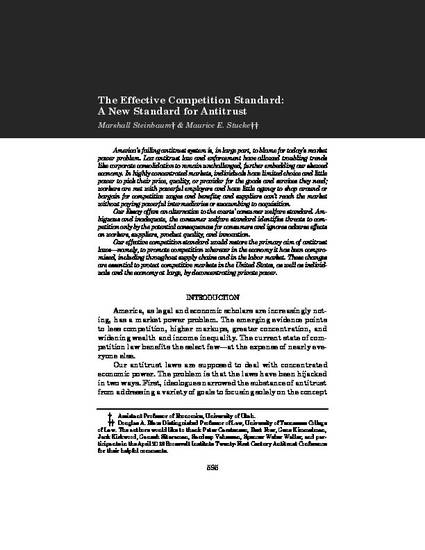
America’s failing antitrust system is, in large part, to blame for today’s market power problem. Lax antitrust law and enforcement have allowed troubling trends like corporate consolidation to remain unchallenged, further embedding our skewed economy. In highly concentrated markets, individuals have limited choice and little power to pick their price, quality, or provider for the goods and services they need; workers are met with powerful employers and have little agency to shop around or bargain for competitive wages and benefits; and suppliers can’t reach the market without paying powerful intermediaries or succumbing to acquisition.
Our Essay offers an alternative to the courts’ consumer welfare standard. Ambiguous and inadequate, the consumer welfare standard identifies threats to competition only by the potential consequences for consumers and ignores adverse effects on workers, suppliers, product quality, and innovation.
Our effective competition standard would restore the primary aim of antitrust laws—namely, to promote competition wherever in the economy it has been compromised, including throughout supply chains and in the labor market. These changes are essential to protect competitive markets in the United States, as well as individuals and the economy at large, by deconcentrating private power.
Available at: http://works.bepress.com/maurice_stucke/35/
